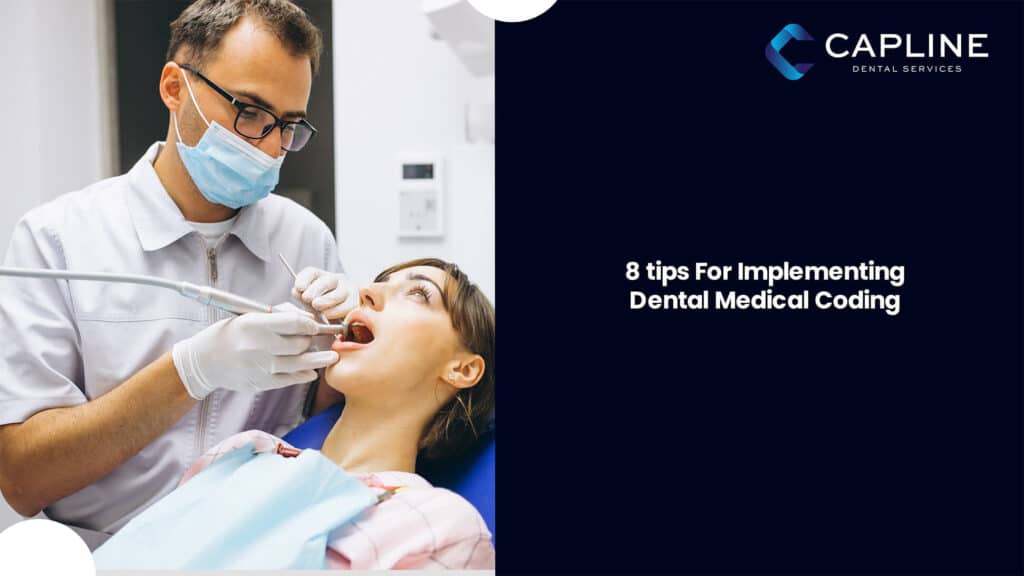
Mastering dental cross-coding ensures that every patient receives the attention they deserve. Let us provide you with a roadmap to integrate medical billing for a dental practice. Let’s dig in:
Dental cross-coding is crucial for revenue and meets the diverse needs of patients. Dental cross-coding is significant for:
The intricacies of dental coding facilitate efficient billing and seamless claim processing.
Cross-coding helps medical insurers, dental practices, and dental insurance companies communicate effectively. It converts dental procedures into a format that all parties can understand and proceed with quick reimbursement.
To become an expert, dental professionals need CDT and ICD-10 coding skills. Commonly used CDT codes include:
ICD codes categorize and document medical diagnoses in the dental field. Frequent ICD-10 codes are:
Dental professionals must ensure a precise coding system. Adopting proper documentation and reporting safeguards revenue and ensures proficient claim processing.
Continuous training to elevate the practice:
The team excels when they have the most current information in the field of dental medical coding. Ongoing training upgrades staff with the latest CDT and ICD coding updates and guidelines to elevate patient care. By investing in training, the practice can have an efficient and effective workflow.
Update the knowledge about coding:
CDT and ICD codes are regularly revised to reflect advancements in the medical and dental fields, ensuring practitioners have an effective tool at their disposal. Staying ahead minimizes the risk of claim denials and protects the revenue from unnecessary rejections.
Dental claim documentation:
Accurate coding is possible only with precise documentation. Staying profitable and compliant together requires a lot to know, making it unrealistic to remember each detail. Whether the dental practice is new or experienced, Capline Dental Services will help build long-lasting relationships with your patients and the insurers.
Verifying the patient's eligibility:
You wouldn't want to initiate the treatment without understanding the financial implications. It guarantees that both covered & non-covered services can prevent unnecessary bills for the patient and the practice. Knowing the eligibility and breakdown of benefits can empower the patient experience. Verification takes longer than usual, and by outsourcing dental insurance verification, the practice has all the details before treatment planning.
Authenticates codes:
Accuracy is non-negotiable in dental cross-coding. The alignment of treatment and diagnosis codes can prevent issues. The discrepancies result in claim denials. Working with Capline Services ensures vigilance without failure. It improves the collection rates and streamlines the dental billing process.
Keep up with the technology:
Seamless electronic claim submission is effective through advanced technology. The innovation streamlines the coding process, updating real-time details and minimizing errors.
Follow-up on claim status:
Tracking submitted claims provides a clear picture of pending and denied claims. It addresses obstacles and works on the solution. Ignorance can increase the pile of unclaimed payments that are well-deserved.
Appeal Process:
Unwarranted claims get contested to accelerate the payment process. A streamlined internal process identifies and initiates the appeal of unjustified denials. An appeal process supported with precise documentation improves the acceptance rate.
Now, let us discuss some challenges that hinder the financial well-being and how to overcome them to enhance patient satisfaction and outcomes.
Many patients do not prioritize their dental insurance, and as a result, they end up paying more for treatment. Connecting to Capline Dental Services is a prudent choice to remove the complexity of insurance claims.